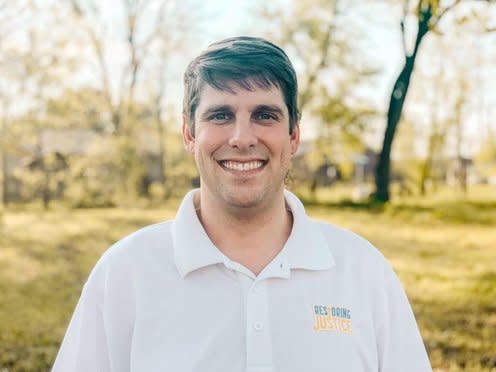Lawyer Settles With Judge Accused of Cutting His Caseload for Criticizing Indigent Defense Appointments

Houston solo practitioner Drew Willey. Courtesy photo.
A criminal-defense lawyer who alleged that a Galveston County judge cut his assigned cases in retaliation for criticizing the county’s indigent defense practices has settled his lawsuit with the judge.
Galveston County Court-at-Law No. 3 Judge Jack Ewing did not admit to any wrongdoing in the April 22 settlement agreement with Houston solo practitioner Drew Willey. They both agreed they share a goal of providing high-quality indigent defense and following the law and U.S. Constitution. Willey and Ewing also said they would abide by the Texas Fair Defense Act and their county’s indigent defense plan.
“There was no evidence of any wrongdoing as alleged by Mr. Willey. Judge Ewing has merely agreed to continue to follow the rule of law as Judge Ewing has and will continue to do,” said Mike Lowenberg of the Lowenberg Law Firm in Houston, who represented Ewing. “Hopefully, this settlement will help prevent, or at least discourage in the future, frivolous claims against members of our judiciary, unless those claims have serious merits.”
Willey said he hopes to see future improvements in how the county handles its jail docket, and the potential establishment of a public defender office.
“I’ve got to hand it to Judge Ewing. He started appointing me to these cases again and the settlement, I think, on his willingness to follow the plan and the law speaks for itself. That is primarily what I’m concerned with is upholding the law and constitutional rights of my clients, who are primarily indigent defendants,” Willey said.
Earlier in the case, a magistrate judge recommended dismissing Willey’s claims for attorney fees and injunctive relief, but refused to grant Ewing’s arguments to dismiss claims for declaratory relief. The Dec. 17, 2018, memorandum and recommendation explained that Willey alleged that Ewing removed him from cases and stopped assigning him new cases because Willey spoke out about court practices, appealed the denial of his full attorney fees in cases, and filed complaints with state agencies. For example, Willey said appointed lawyers have inadequate resources to represent clients, the county has an unconstitutional money bail system and that defense lawyers can’t talk confidentially with their clients.
Ewing claimed the court should dismiss the case because Willey didn’t actually suffer any injury. He argued the attorney was only speculating about the reason for his lack of appointments. Willey had only guessed the random selection of attorneys was unlikely to be the reason for the size of his caseload, and had assumed it resulted from retaliation by the judge, according to Ewing.
But the magistrate judge disagreed, and found Willey’s complaint did allege concrete harm. Ewing had also claimed there was no connection between what he allegedly did, and any harm to Willey. But the court determined that Willey’s complaint had crossed a threshold by alleging an injury that fairly could be traced to Ewing’s actions.
Ewing argued that case law from the U.S. Court of Appeals for the Fifth Circuit would bar Willey from collecting attorney fees or winning injunctive relief in the case. The court agreed, and dismissed those claims.
Among other things, Ewing argued the court should dismiss the case because Willey didn’t allege enough facts to support a First Amendment retaliation claim. The court disagreed, saying that Willey’s pleading sufficiently alleged an adverse employment action: losing his assigned cases and future appointments in Ewing’s court. His speech, detailed in the complaint, did involve a matter of public concern. Willey filed a complaint with the Texas Indigent Defense Commission in May 2016, and Ewing removed him from a case 11 days later, which is sufficient to allege that his speech motivated Ewing’s action.



